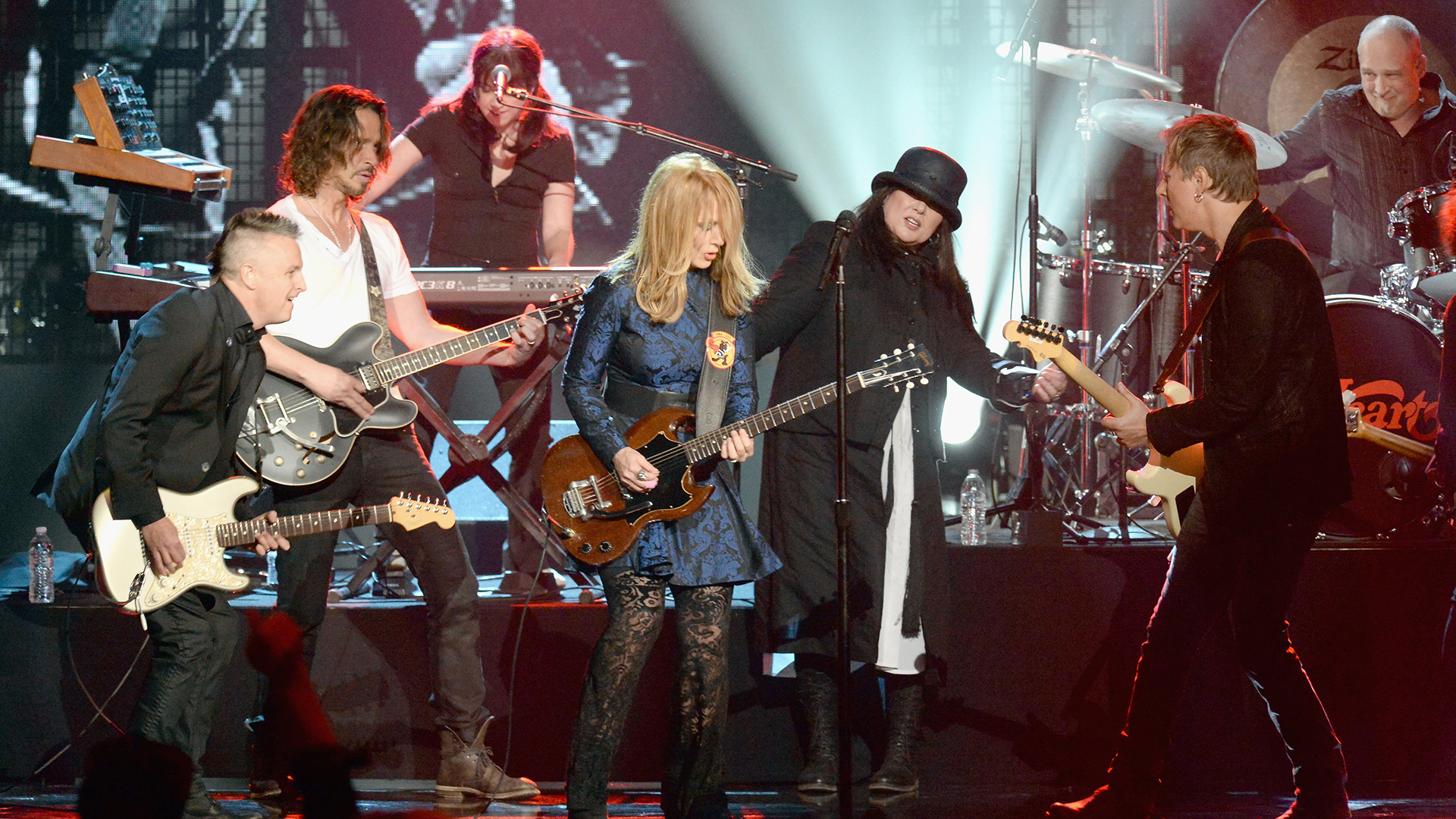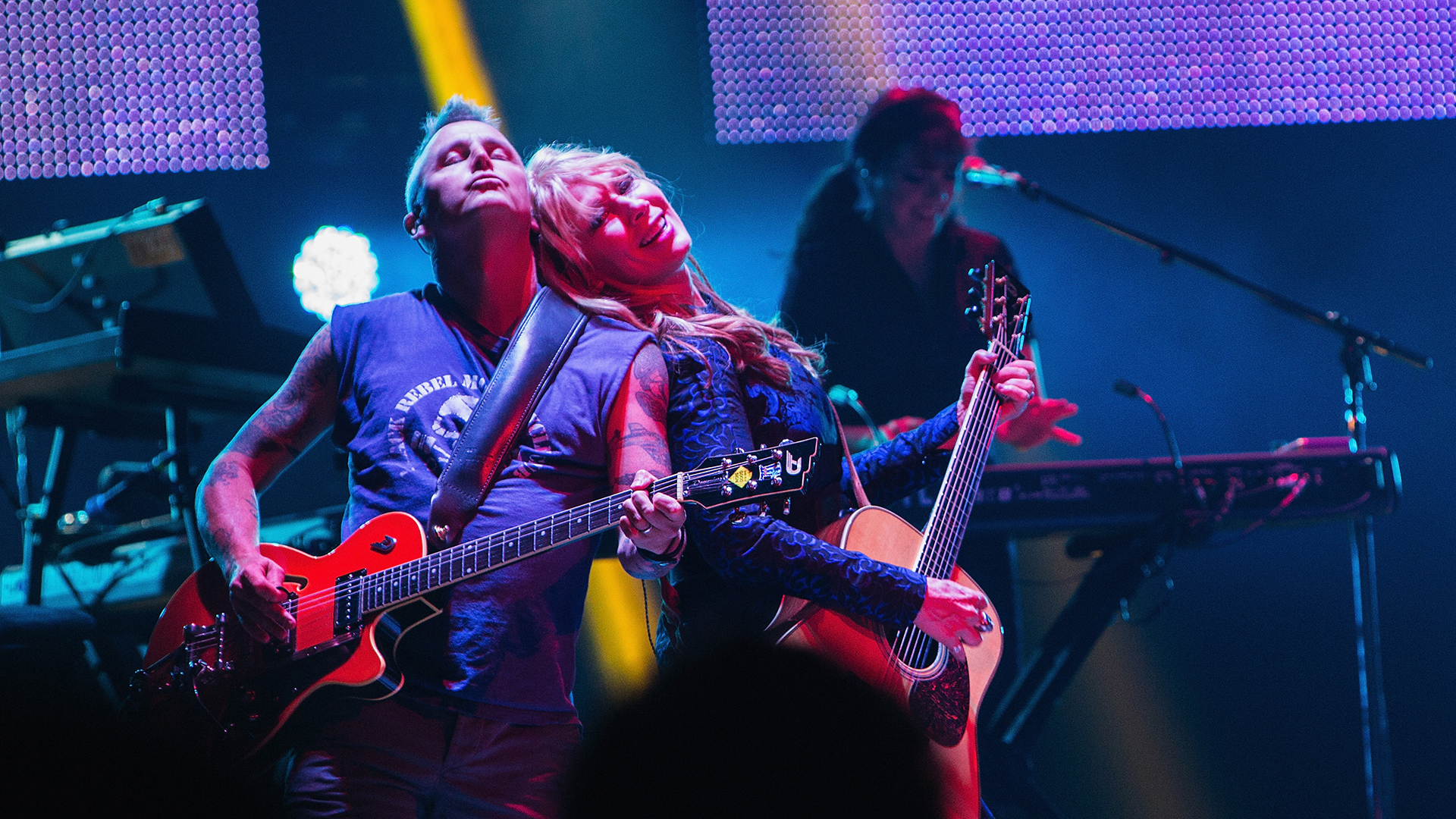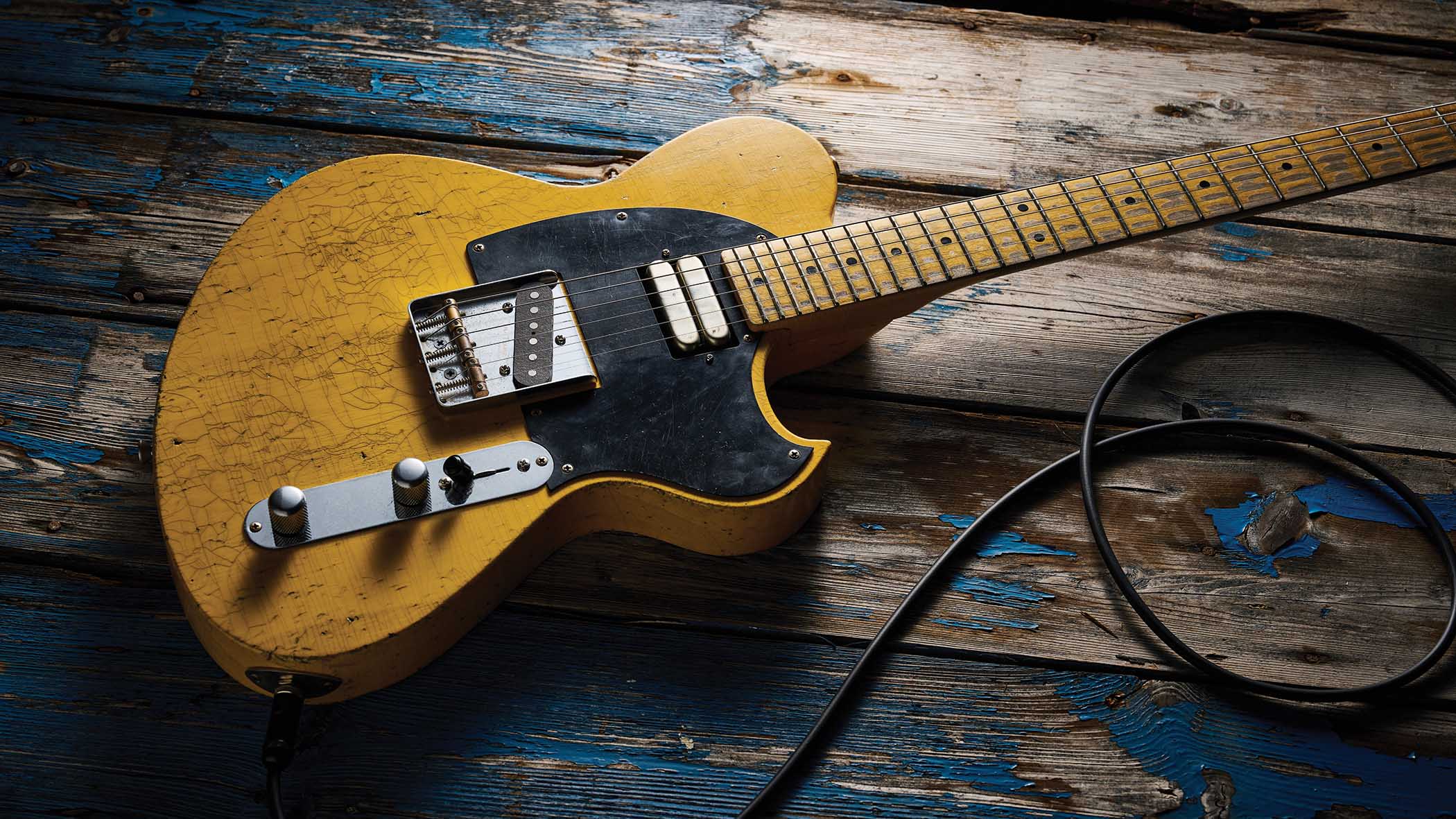“Grunge was a much-needed break from the corporate ’80s sound. It literally put electric guitar rock back on the map”: Nancy Wilson explains why Seattle has produced so many guitar heroes
The Heart legend looks back at the prolific musical legacy of her hometown in this exclusive excerpt from new book The Sound of Seattle

All the latest guitar news, interviews, lessons, reviews, deals and more, direct to your inbox!
You are now subscribed
Your newsletter sign-up was successful
Think of the quintessential Seattle band and you might, understandably, reach for the grunge icon of your choice, but from Hendrix to Heart, the city is steeped in guitar playing history.
Now KEXP DJ and frontwoman of the Black Tones, Eva Walker, alongside her music journalist husband, Jake Uitti, have penned a love letter to the music history of the Seattle-area, The Sound of Seattle.
From Thunderpussy to Ayron Jones, Kurt Cobain to Ben Gibbard and The Sonics to Sleater-Kinney, the book, which is out on August 20, chronicles some 80 years of songs and innovations in the Emerald City.
Included are also a number of interviews with Seattle luminaries, from Jack Endino to Sir Mix a Lot, alongside a healthy chunk of guitarist talent.
Below the authors have shared an excerpt from one of the city’s most iconic players – and a Rock & Roll Hall of Famer – Nancy Wilson, of Heart.
For the guitarist who co-wrote songs like Barracuda and Magic Man, her hometown of Seattle – and its place as one of rock ’n’ roll’s foundational cities – is reflected in another bastion of music, the UK...
The Liverpool of the States
For Nancy Wilson, the guitar dynamo for the Pacific Northwest–born rock band Heart, Seattle has often reminded her of another cloudy port town that helped spawn a musical movement.
All the latest guitar news, interviews, lessons, reviews, deals and more, direct to your inbox!
Wilson, who rose to fame co-writing and performing songs like Barracuda and Crazy On You, believes Seattle is a lot like the birthplace of the Beatles, Liverpool. But Seattle, notes Wilson, also has its own Fab Four: grunge icons Nirvana, Pearl Jam, Alice in Chains, and Soundgarden. Coincidence? Likely not.
“I always called Seattle the Liverpool of the States,” says Wilson. “They are sister cities. Seattle is such a rich and storied seaport town with ferries crossing the Sound under gray rainy skies.”
Heart, in which Wilson starred along with her big-voiced sister, lead singer Ann, released its seminal debut album, Dreamboat Annie, in 1975. With it, the band helped bolster the 1970s rock landscape, along with groups like Led Zeppelin and the Who.
Of course, Heart was also different from these groups. They were American and were led by women. In this way, Heart inspired a generation (and beyond) of rockers, from Kathleen Hanna to Brandi Carlile.
But, says Wilson, while rock thrived in the 1970s and later in the 1990s, the genre may have been searching for itself a bit in the 1980s. Indeed, she says, the ’70s and the ’90s were high points in the guitar-based music – thanks in large part to Seattle.

Northwest rock pioneers
“The musical story of Seattle was never more fashionable than in the ’90s,” says Wilson. “The music was a much-needed break from the corporate ’80s sound and literally put electric guitar rock back on the map. Nirvana, Alice in Chains, Pearl Jam, and Soundgarden became the pillars of the new sound that took over the world like a cultural flash mob.”
The moody weather of the great Northwest, plus the infusion of travelers from around the world help bring forth a creative haven for players
While Wilson celebrates the grunge movement of the ’90s, she knows it would not have happened without those who came before, including her skeleton-shaking rock group and the many others who preceded her, locally and beyond.
“Jimi Hendrix hailed from Seattle as well as great Northwest rock pioneers like the Wailers, Merrilee Rush and the Turnabouts, the Kingsmen, the Sonics, to name a few,” says Wilson. “And then there was Ray Charles.”
In Seattle, the question often arises, as it must also in pubs and music clubs in Liverpool today: Why here? What makes this place special and conducive to so much music?
For Wilson, who has lived in the city for decades, including with her former husband of nearly 25 years, movie director Cameron Crowe, it has to do with location and weather as much as talent and drive.
“I think the moody weather of the great Northwest – like Liverpool – plus the infusion of sailors and travelers from around the world help bring forth a creative haven for players sheltering indoors out of the elements and banging away in garage bands,” offers Wilson.
“To me, all of these players through the eras are what makes ‘The Seattle Sound.’ The ’50s bands informed the bands of the ’60s and so forth.”
The Seattle sound
In the ’80s it was almost like rock had to get over its corporate tantrum to return to the real deal
Specifically, Wilson says, the ’70s were a time of experimentation and achievement on the West Coast, thanks to open-minded cities like those in the Bay Area, as well as the Emerald City, and to musicians from Hendrix and Santana at Woodstock in 1969 to Heart and the second wave of the British Invasion a handful of years later.
“In the ’70s, Heart became part of the Seattle Sound although so much was also still being born out of the Bay Area, too,” Wilson says. “The mind-expanded sounds of the ’60s folded easily into the’70s where you’d hear more epic and longer songs like In-A-Gadda-Da-Vida.
“Also, the genius of Led Zeppelin entered the story like the ultimate rock muses they were, and it was at a small venue called the Green Lake Aqua Theater where we witnessed their opening set for a youth festival. It was as mind-bending and life-altering as having seen the Beatles live at the Seattle Coliseum in 1966.”
And what effect, exactly, did all of this have on her in real time? “Being in Heart in the mid-’70s was pure adrenaline and excitement,” says Wilson.
“We had the intuition that music was a wide-open playing field for a band as unique as we were and that it was going to work. Apparently, our instincts were right when the first Heart album went big region by region in 1975.”
What about the region itself? “All around the whole Northwest [in the ’70s], that was a magical time for the Seattle Sound, even if you were from Vancouver or Portland or Olympia. Bands were thriving and creating greatness in their own right and in their own style. Later, the ’80s decade was almost like rock had to get over its corporate tantrum to return to the real deal.”
- The Sound of Seattle is published on August 20 and available to preorder now.


